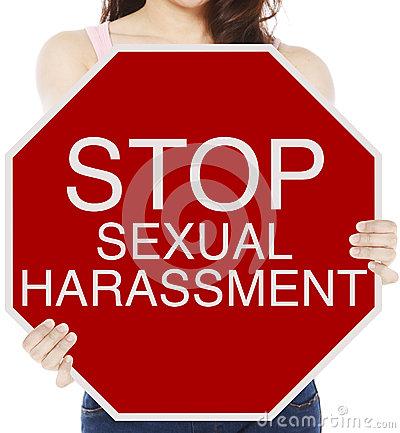Sexual Harassment in Media Houses
December 16 marks the one-year anniversary of the brutal gang-rape in Delhi. A year ago, the media reported on the protests and outbursts that followed the tragic incident. The media took on the role of a crusader for women's safety on the street. But tragically, inside its own corporate glass doors lurk sexual offenders.
The accusation on editor-in-chief of Tehelka, Tarun Tejpal, of sexually assualting a female colleague at the THINK fest held in Goa, and the subsequent mishandling of the case by the managing editor Shoma Chaudhary has brought the fourth-estate under the eye of the storm. The media is now scrutinized for neglecting the Vishaka guidelines that were passed by the Supreme Court in 1997 to deal with complaints of sexual harassment.
Some of the leading media organizations, when contacted, confirmed having a sexual harassment complaint cell or policy. Others were ambiguous in their response. According to the employees at Hindustan Times, The Statesman and NDTV, they all have sexual harassment cells in their organizations. An employee at Frontline has reported that the management has put up notices with regard to an internal complaints committee and with regard to Vishaka guidelines. The India Today Group has confirmed of having an anti-sexual harassment policy and procedure in place. News agencies IANS and PTI have sexual harassment complaint cells in accordance with the Vishaka guidelines. However, in most of the mentioned media organizations, employees were relatively unaware of any policy against sexual harassment at their workplace.
An HR professional with a leading news publication in Mumbai said, “We cannot even imagine in our dreams something like that happening at our office. We are like a family here.” Unsurprisingly, the publication doesn’t have a complaints committee in their Delhi office while having one in Mumbai, even though the law requires all regional centres of an organization with 10 or more employees to constitute a complaints committee.

Image via www.dreamstime.com
A 24-year-old Priyanka (name changed) narrated the story of the sexual harassment she faced when she worked as a video editor for the website of a leading news channel. She had answered some questions for a telephonic sex survey. The questioner was Rajat (name changed) who worked for the same news channel. Their phone conversation included details of Priyanka’s sex life.
“I knew the channel was working on a programme on the sex lives of youngsters, so I wasn't suspicious at all," Priyanka said. “We worked in different sections, but I knew him well because we shared the same office cab." They exchanged text messages in which Rajat appreciated her boldness in answering the questions, and Priyanka replied her thanks. But Rajat's sexual advances towards Priyanka following their phone conversation made Priyanka realize that she had been fooled.
She immediately told a male colleague about how, under the pretext of the survey, Rajat had asked her personal questions about her sex life. On her colleague's advice, she wrote an e-mail to her immediate boss narrating the incident. A committee of seven members was immediately set up to look into the matter. The panel comprised Priyanka's immediate boss in the website section, Rajat's immediate boss and four other employees from the channel, and the HR of the media house. The only women on the committee were the HR and one of the four employees from the channel. Clearly it wasn't a sexual harassment complaints committee as per the Vishaka guidelines, for in such a committee, not less than half of the members must be women, and it must be headed by a senior-level woman employee in the organization.
The committee talked twice with Priyanka and with her male confidant, and about four times with Rajat. "I gave my statement to them. I told them that I answered his questions only because he told me that he was working on the survey. It was only later that I realized it was not for the survey," Priyanka said. Rajat maintained that he had initially asked those questions for the survey, but somewhere in the middle of the conversation he said the survey was over, and that now they were talking on a personal level. "He never said that. I wouldn't have continued speaking to him about my sex life if the survey was over," Priyanka said.
Rajat was engaged and was to get married in six months. He threatened to commit suicide if he was fired from the job. The committee arrived at the decision that Rajat asking her the questions was wrong, but because Priyanka had willingly answered those questions, there is no case of sexual harassment. “I quit the job a few months later,” Priyanka said.
The HR head of the media group today states that the group has an anti-sexual harassment policy. She doesn’t explain if they have a sexual harassment complaint cell in accordance with the Vishaka guidelines.
The government passed the Sexual Harassment of Women at Workplace (Prevention, Prohibition and Redressal) Act in April this year. According to the Act, it is mandatory for every organization with more than 10 employees to set up an internal complaints committee to deal with matters of sexual harassment. Sexual harassment is defined by the Act and by the Vishaka guidelines as -- physical contact and advances; a demand or request for sexual favours; making sexually coloured remarks; showing pornography, and any other unwelcome physical, verbal or non-verbal conduct of sexual nature.
Under the Act, the district officer of the area under whose jurisdiction the organization falls shall also be responsible to set up a local complaints committee. Cases of sexual harassment at workplaces with less than 10 employees, or complaints against the employer himself, shall be reported to the local complaints committee.
After being criticized for delaying the implementation of the Act, the Women and Child Development Ministry has finally formulated the rules. The law stands enforced from December 9 this year to penalize and punish sexual harassers and safeguard women's right to a safe working environment.
Disclaimer: The views expressed in this article are those of the author, and do not necessarily reflect the views of Newsclick.
Get the latest reports & analysis with people's perspective on Protests, movements & deep analytical videos, discussions of the current affairs in your Telegram app. Subscribe to NewsClick's Telegram channel & get Real-Time updates on stories, as they get published on our website.
























